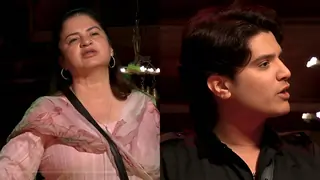Originally posted by: K.Universe.
Problem has to do with what you so eloquently put as "weaving a good tale around it".
Debaters need to weed out the tales. There's no point to smoke and mirrors. For instance "Once upon a time there was an attorney named Bharara. He and his office are known for their prosecutions of insider trading and other financial fraud on Wall Street. Most recently he and his office came to the limelight again with the arrest of Indian deputy consul general, Devyani Khobragade" is fact while "Once upon a time there was an attorney named Bharara. He has a big ego and an appetite for fame. He and his office are known for their prosecutions of insider trading and other financial fraud on Wall Street. Most recently he and his office came to the limelight again with the arrest of Indian deputy consul general, Devyani Khobragade. Bharara is a redneck who cherry-picked this case to curry favors with the conservative base." is a mix of fiction and fact.
Debaters owe it to themselves to separate fact from fiction. All that the fiction does is stray from the core discussion. We don't want to invest energies into arguing whether Bharara has a big ego or not; we don't want to invest our energies into debating whether Bharara is hungry for fame or not; we want to invest our energies into whether Bharara was right in arresting Khobragade or not.
I think you are taking your obsession with objectivity to a little too extreme. When we analyse data, we do form conclusions based on whatever facts that are at hand. And when forming conclusions, many times we have to extrapolate or draw inspiration from past experiences. If we only look at the cold hard facts, we may not always get anything meaningful. The next step automatically becomes - So what? What does it indicate? What can we deduce from this? And if we can't deduce anything from those facts, then what's the use of just having facts for the sake of it?
If the society strictly adheres to facts without making any kind of deductions from them, it will be difficult to even convict criminals. Most of the convictions happen without the criminal being caught red handed. Most of the times, the facts along with deductions help in catching the criminal. Forensic evidences, circumstantial evidences, opportunity to commit the crime, motive, etc. everything together build up a case. So, if fingerprint/ dna is being used as a proof, do we go around taking fingerprints/ dna of everyone to prove that those are indeed unique? If the murder weapon is found in someone's house, should we just look at it as a fact that this was the weapon which was used to murder? Or should we draw the conclusion that those who had access to that weapon had the highest possibility of committing the crime? It's impossible to survive if we are not allowed to draw conclusion based on extrapolation, projection and past experiences. We have to interpret facts to make sense out of it. And when interpretation is involved, there will be logic yes, but there will be subjectivity involved as well. You can't ask people to stop interpreting the available facts when debating just because you don't like the element of subjectivity creeping in.
If what you're saying is true, and all our actions are to be dictated based only on facts without actually interpreting them or deducing anything from them, then Preet Bharara is also wrong according to your logic. He took the maid's word and arrested someone. Did he verify whether the maid is being absolutely truthful? How does he know that what the maid is saying about salary and work condition is nothing but the truth? Did he go there and work as a replacement of that maid to check out what hourly wage Devyani pays, how many hours she makes them work and how she treats her domestic workers? He took the maid's word and proceeded to arrest a diplomat. So, how about you prove now that whatever the maid has alleged (like dismal wages, harsh treatment, godawful working hours, family being unsafe, etc.) are indeed true?
Edited by souro - 11 years ago































